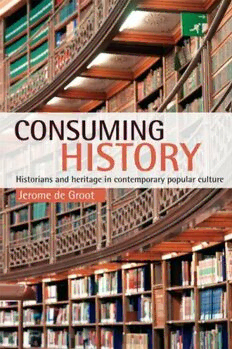
Consuming History: Historians and Heritage in Contemporary Popular Culture PDF
305 Pages·2009·2.53 MB·English
Most books are stored in the elastic cloud where traffic is expensive. For this reason, we have a limit on daily download.
Preview Consuming History: Historians and Heritage in Contemporary Popular Culture
Description:
Non-academic history – вЂpublic history’ – is a complex, dynamic entity which impacts on the popular understanding of the past at all levels. In Consuming History, Jerome de Groot examines how society consumes history and how a reading of this consumption can help us understand popular culture and issues of representation. This book analyzes a wide range of cultural entities – from computer games to daytime television, from blockbuster fictional narratives such as Da Vinci Code to DNA genealogical tools – to analyze how history works in contemporary popular culture. Jerome de Groot probes how museums have responded to the heritage debate and the way in which new technologies have brought about a shift in access to history, from online game playing to internet genealogy. He discusses the often conflicted relationship between вЂpublic’ and academic history, and raises important questions about the theory and practice of history as a discipline. Whilst mainly focussing on the UK, the book also compares the experiences of the USA, France and Germany. Consuming History is an important and engaging analysis of the social consumption of history and offers an essential path through the debates for readers interested in history, cultural studies and the media.
See more
The list of books you might like
Most books are stored in the elastic cloud where traffic is expensive. For this reason, we have a limit on daily download.
